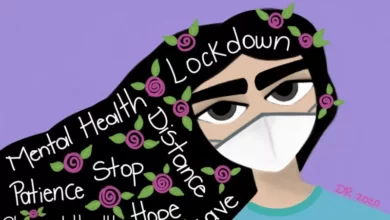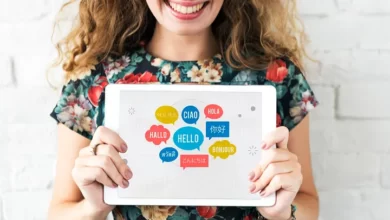The Role of Experiential Learning in Promoting Critical Thinking and Problem-Solving Skills

In today’s rapidly evolving world, the ability to think critically and solve complex problems is highly valued. Traditional educational approaches often fall short in cultivating these essential skills. However, experiential learning has emerged as a powerful methodology to foster critical thinking and problem-solving abilities in individuals. This article explores the concept of experiential learning, the significance of critical thinking and problem-solving skills, and how experiential learning can play a pivotal role in their development.
Introduction
In this introductory section, we will provide an overview of the article and highlight the importance of experiential learning as a catalyst for promoting critical thinking and problem-solving skills.
Understanding Experiential Learning
Before delving into the role of experiential learning in enhancing critical thinking and problem-solving, it is crucial to understand the fundamentals of this approach.
Definition of Experiential Learning
Experiential learning is an educational philosophy that emphasizes learning through firsthand experiences, where individuals actively engage in concrete experiences, reflect on those experiences, conceptualize new ideas, and apply their newfound knowledge to future situations.
Principles of Experiential Learning
To create effective experiential learning experiences, certain principles are commonly employed. These principles include active engagement, reflection, application, and evaluation. Each principle contributes to the overall effectiveness of the learning process.
The Importance of Critical Thinking and Problem-Solving Skills
Critical thinking and problem-solving skills are crucial in today’s complex and dynamic world. They empower individuals to analyze information critically, make sound decisions, and overcome challenges effectively.
Definition of Critical Thinking
Critical thinking refers to the ability to objectively analyze and evaluate information, ideas, or arguments. It involves the utilization of logical reasoning, evidence-based judgment, and open-mindedness to arrive at informed conclusions.
Definition of Problem-Solving Skills
Problem-solving skills encompass a range of cognitive abilities and strategies that enable individuals to identify, analyze, and solve problems. Effective problem solvers demonstrate adaptability, creativity, and the capacity to implement suitable solutions.
The Role of Experiential Learning in Promoting Critical Thinking
Experiential learning serves as a valuable platform for cultivating critical thinking skills. Through immersive experiences and structured reflections, learners can enhance their critical thinking abilities in various ways.
Engaging with Real-World Scenarios
Experiential learning provides individuals with opportunities to engage with real-world scenarios, allowing them to apply their knowledge in practical settings. By encountering authentic challenges and complexities, learners are prompted to think critically about possible solutions and their potential consequences. This active involvement fosters a deeper understanding of the subject matter and encourages the development of analytical thinking skills.
Encouraging Reflection and Analysis
Reflection plays a vital role in the experiential learning process. After engaging in an experience, learners are encouraged to reflect on their actions, observations, and outcomes. This reflective practice prompts individuals to analyze their thought processes, assumptions, and biases, enabling them to identify areas for improvement and refine their critical thinking abilities. Through guided questioning and structured reflection exercises, learners can gain insights into their own thinking patterns and enhance their ability to evaluate information critically.
Fostering Collaboration and Communication
Experiential learning often involves collaborative projects and group activities. Working together with peers allows individuals to exchange ideas, perspectives, and insights. Through effective communication and active listening, learners can challenge their own assumptions and broaden their understanding of different viewpoints. Collaborative problem-solving also encourages critical thinking as individuals engage in discussions, analyze alternative solutions, and evaluate the feasibility and effectiveness of each option.
The Role of Experiential Learning in Promoting Problem-Solving Skills
In addition to enhancing critical thinking, experiential learning also plays a crucial role in developing problem-solving skills. Through hands-on experiences and immersive learning environments, individuals can cultivate their ability to tackle complex problems effectively.
Enhancing Analytical and Decision-Making Abilities
Experiential learning provides learners with opportunities to analyze multifaceted problems and make informed decisions based on available information. By engaging in real-life scenarios, individuals develop analytical skills, learn to gather and evaluate relevant data, and apply logical reasoning to arrive at effective solutions. This process of analyzing and making decisions in practical contexts strengthens problem-solving skills and prepares individuals for real-world challenges.
Encouraging Creativity and Innovation
Experiential learning nurtures creativity and innovation by encouraging individuals to think outside the box and explore unconventional approaches to problem-solving. By immersing learners in dynamic and unpredictable situations, experiential learning stimulates their imagination and challenges them to generate innovative solutions. This emphasis on creative problem-solving fosters a mindset of exploration, adaptability, and resilience, which are essential traits in today’s rapidly changing world.
Developing Adaptability and Resilience
Experiential learning provides individuals with opportunities to confront unexpected obstacles and adapt to changing circumstances. By engaging in hands-on experiences, learners develop the ability to navigate through uncertainty, overcome challenges, and persevere in the face of setbacks. This resilience-building aspect of experiential learning equips individuals with the problem-solving skills needed to effectively address complex and dynamic situations throughout their personal and professional lives.
Integrating Experiential Learning into Educational Settings
To fully harness the benefits of experiential learning, it is important to integrate this approach into educational settings effectively. Educators and institutions can implement various strategies to create meaningful experiential learning experiences for students.
Strategies for Implementing Experiential Learning
- Incorporating field trips and site visits to provide real-world experiences.
- Designing hands-on projects and simulations that simulate authentic problem-solving scenarios.
- Facilitating internships, apprenticeships, or cooperative education programs to expose students to professional environments.
- Utilizing technology-enhanced learning tools and virtual simulations to create immersive experiences.
- Encouraging active participation, reflection, and peer collaboration during experiential learning activities.
Challenges and Solutions
While implementing experiential learning in educational settings, educators may encounter certain challenges. However, with careful planning and consideration, these challenges can be addressed effectively.
One challenge is the logistical aspect of organizing experiential learning activities. It may require coordination with external stakeholders, arranging transportation, and ensuring the availability of necessary resources. Educators can overcome this challenge by establishing partnerships with local organizations, leveraging online resources and virtual experiences, and incorporating experiential learning within the school or campus environment.
Another challenge is assessing and evaluating the learning outcomes of experiential learning activities. Traditional assessment methods may not be suitable for capturing the multifaceted nature of experiential learning. Educators can address this by implementing a variety of assessment strategies, such as reflective journals, portfolios, presentations, and group discussions, to gauge students’ critical thinking and problem-solving skills.
Furthermore, experiential learning may require additional time and effort from both educators and students. It may involve extended periods of engagement, reflection, and collaborative work. To overcome this challenge, educators can integrate experiential learning into the curriculum by aligning it with learning objectives and ensuring adequate support and guidance for students throughout the process.
In conclusion, experiential learning offers a powerful platform for promoting critical thinking and problem-solving skills. By engaging individuals in real-world experiences, encouraging reflection and analysis, fostering collaboration and communication, and developing adaptability and resilience, experiential learning enhances learners’ abilities to think critically and solve complex problems effectively. Integrating experiential learning into educational settings requires careful planning, collaboration, and innovative approaches, but the benefits for students are invaluable.



